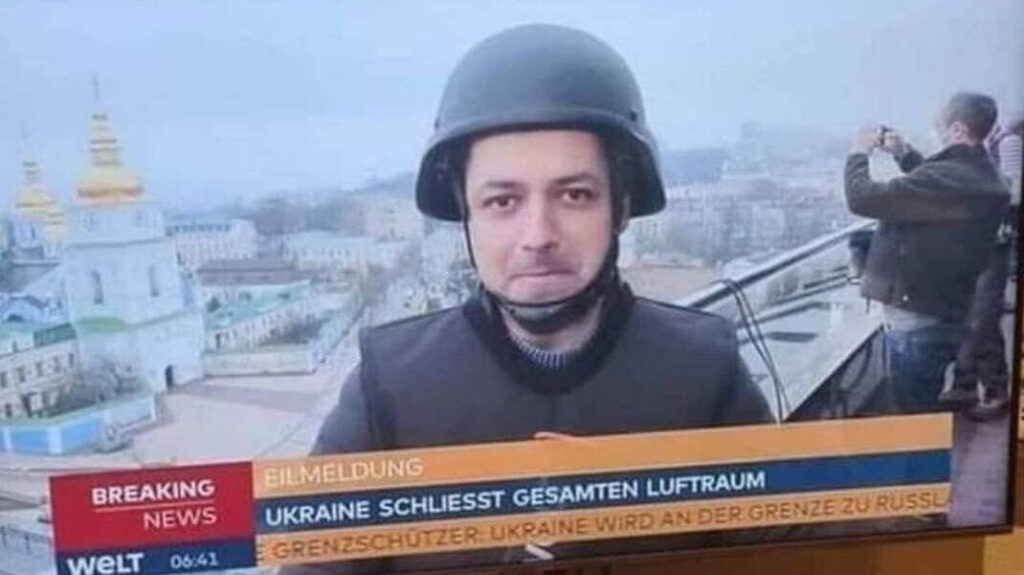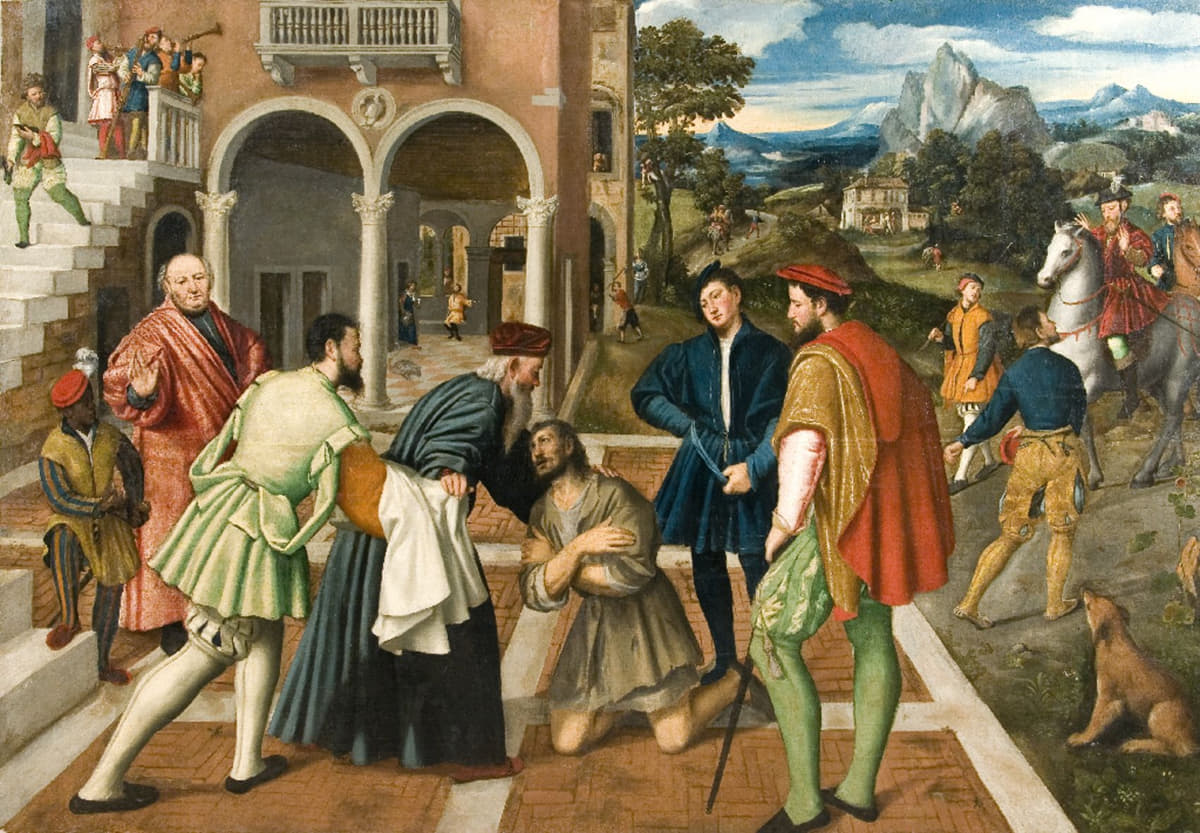The liberation of the Donbas by the Russian army has surprised us all, as I believe that nobody thought that the situation would end in an armed clash. Yesterday, after the commemoration of the Homeland Defense Day, the Kremlin government decided to put an end to a conflict in which the threats of the Atlanticists have been answered with facts by Russia. In these chaotic hours, we have the feeling that history has returned to Europe with the liberating advance of the Russian troops.

It seems that the dogmatic reverie of the foolish social democracy is collapsing, that the old and rotten liberal structure is falling down. NATO, the Western partitocracies, and also we, ordinary Europeans, find ourselves faced with the most unexpected of responses, faced with the thundering echoes of the ultima ratio regum, the motto that Louis XIV inscribed on his cannons and which graphically explains what is the essential core of the sovereignty of a State: force, the element that supports the political decision of a national community. Something the twilight Europeans do not know the meaning of, since they have long since handed over to stateless elites and organizations their ability to act as agents of history. Since the 1960s, Europe has tried to live outside the historical future, to sacrifice community identity—the being of the nation—to the opium of Welfare and the hedonistic aberrations of extreme nihilism. Russia is just the opposite example.
The End of History consisted of the forces of money, personified in the United States, imposing on the whole world the American Way of Life, the free market and democracy according to their regal whim, while Europe limited itself to assisting Washington and justifying its aggressions in Iraq, Afghanistan, Syria or Libya. However, this unipolar conception of geopolitics is not real. In 2016, the Americans themselves showed that they did not want to be the instrument of international elites and elected Trump as president, who could only be removed after a very dubious electoral process, a real coup d’état of the globalist oligarchy.
Russia, a power with a much smaller military capability than the United States and its NATO sepoys, stood up to the attempt to sow Islamist chaos in Syria and is now challenging the Anglo-Saxon hegemony with a bold move, responding unexpectedly to the ultimatums that the U.S.-backed government in Kiev had launched against Moscow in the last month. The bluffing game of the Zelensky histrion was accepted by Russia, and Moscow’s envoy has thwarted with blood and iron all the palaver of the NATO rabbis and the Open Society millionaire bonzes and sycophants.
Today, the end of the End of History has begun. American world hegemony is in question. Russia has broken the borders of an artificial state, which was built on the union of the historical Ukraine and New Russia by Lenin, and has defended the rights of its popular community, of that half of today’s Ukraine which is and feels Russian. Faced with these facts, the stateless plutocracy of the West will have to react somehow, or else its dominance will crumble, its New World Order will become a paper tiger that no one fears. The lapsed Joe Biden already has his war—but this one has blown up in his hands, possibly much earlier than he planned; he thought Putin was going to play by Washington’s rules and timelines.
The awakening has been bitter for the decrepit figurehead of the elites. His entanglements are unleashing a disaster that is dragging down his puppet regime, established after the Maidan coup of 2014, the work of Soros, Brussels and the American embassy in Kiev. The essential objective of the Anglo-Saxon strategy, to antagonize Russia and Ukraine, to prevent concord between the two states, had been achieved. The consequences were calamitous for Ukraine itself, whose political authority was erased overnight in Crimea, Lugansk, Donetsk, Kharkov and even Odessa. Only Putin’s excessive prudence, which limited itself to securing Russian Crimea and protecting the stable rebel nuclei in Lugansk and Donetsk, prevented the dissolution of Ukraine eight years ago. The Kremlin’s big mistake in 2014 was not to have reached out to Kyiv.
Like Poland in 1939, Ukraine has been thrown into an enterprise from which it will emerge battered and divided. This is what the Maidan “Revolution” and the political adventurism of the global plutocracy and its Ukrainian puppets have led to. America’s credibility will depend to a large extent on its response to this challenge. If it does nothing, the thesis of a unipolar world, of an American sphere, will be no more than a bad dream, a multicultural nightmare dissipated by the cold wind of the Russian steppe.
Sertorio lives, writes and thinks in Spain. this review comes through the kind courtesy of El Manifesto.
Featured: The Return of the Prodigal Son, by Bernardino Licinio; painted ca. 1530s.
